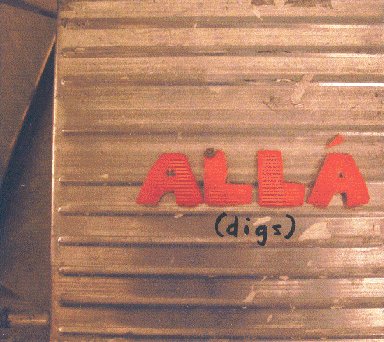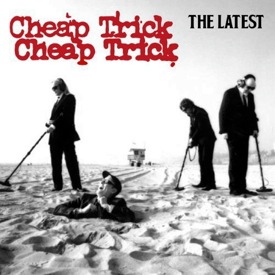
The Shazam -- Meteor (Not Lame)
The long awaited follow up to Tomorrow The World finds The Shazam somehow pulling off the feat of sounding more classic and more weird, all on the same LP. This album is a bit more in the vein of Godspeed The Shazam, with some eccentric tunes serving as change ups for the band’s drawling take on power pop a la Cheap Trick, The Move and The Who. The difference is that there’s a bit more weirdness, some of it musical and some of it in the lyrics.
What this means is that the album is not as immediate as prior efforts, as it has an odd flow. But the hooks start to come through and the effort to provide more than cookie cutter rock lyrics is greatly appreciated.
Some of this is apparent just by looking at the titles. There is no hidden meaning behind “Latherman Shaves the World”. That’s just what the song is about. The song starts with a burst of harmony vocals shouting “Latherman,” then moving into a power jangle with Scott Ballew powering the attack with his drumming. Hans Rotenberry then works every shaving reference that he can think of into the lyrics. Whether it’s singing about things getting “hairy” or of “standing in the five o’clock shadow,” Rotenberry maintains a straight face. Meanwhile, the music isn’t jokey in the slightest. Indeed, the song moves to a spacey middle eight before really building to near anthem proportions. These guys take shaving more seriously than Gillette.
They also tell interesting stories. “NFU” is a slice of ‘70s style hard rock whimsy, about a night out that went badly because everyone but the narrator was wasted. Hans helpfully explains, “I drove -- because I was not fucked up enough.” This song bounces along like a more sped up cousin of Aerosmith’s “Last Child”, sly and clever, yet still suitable for your 8-track player.
Rotenberry’s skewed perspective further comes across on “Hey Mom I Got The Bomb”. This is The Shazam in its dixie fried Cheap Trick mode, as Hans gleefully lets everyone know that he may be “dumb and ugly and the whole world hates me,” but no one is going to pick on him anymore. The title can be taken literally. The chorus is made for shouting along at Shazam shows, the middle eight allows things to slow down before one last rocking rush, the lyrics are a gas (“going to use it with particular aplomb;” “all I ever wanted/cost me everything I had”) -- yep, this is a hell of a song.
Not everything is so silly. The band can still crank out inspiring hookfests. One of the best here is “Let It Fly”. It’s a tune that starts quietly and builds up to soaring chorus. The whole song is about just going for it and doing your best, and the music fits the encouraging lyrics perfectly. Then there’s the killer ballad, a la “Stranded Stars” from Godspeed The Shazam. Here, the killer ballad is “Don’t Look Down”. The song is a melange of sounds from The Beatles to Cheap Trick to Electric Light Orchestra to Mott The Hoople with everything leading to the mega-gigantic chorus. This track really makes me realize how Rotenberry’s vocal skills are truly underrated. He isn’t a powerhouse singer, but he has deceptive range and he is very expressive.
There are other highlights, including “Disco at the Fairgrounds”, which is on par with The Eagles Of Death Metal until the goofy chorus (and dig the ultra-high harmony vocals out of the Sweet playbook), which shouldn’t work, yet it does, and the big guitar riff fest that is “Dreamcrusher Machine”.
It’s been my view that The Shazam is the best band of the crop of great talents that spurred an indie power pop revival in the late-‘90s. This album not only solidifies that status but shows that they still have what it takes.












.jpg)


















